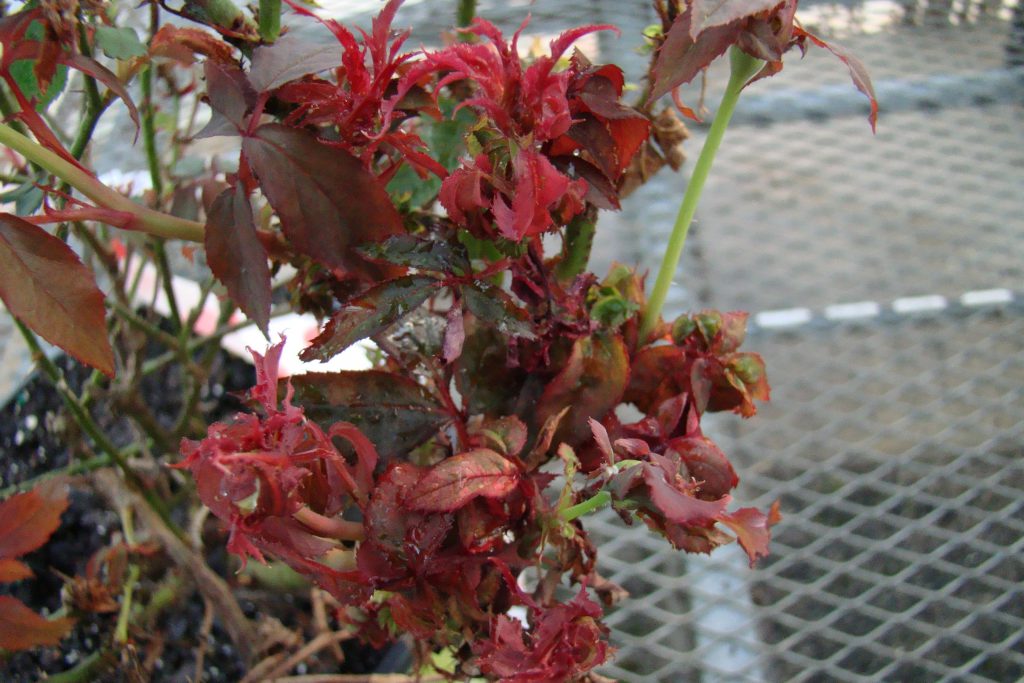
It is time to monitor for Rose Rosette Disease in Florida
Author: Dr. Mathews Paret

Rose Rosette (Photo Credits: Mathews Paret)
Caused by: Rose rosette virus (Currently not present in Florida; but previously discovered in three counties in Florida in 2013 and 2014 led to the successful destroyal of the infected plants)
Vectored by: An eriophyid mite species; Phyllocoptes fructiphilus (Not known to be present in Florida). Grafting or budding can also transmit the virus from infected to healthy plants
Why is monitoring for rose rosette disease in Florida important?
- Currently, Florida is the state with the largest value in wholesale production of roses in the U.S ($29.7 million)
- The landscaping industry in Florida heavily uses roses and especially shrub roses.
- The disease can affect all varieties of roses
- Currently, there is no known cure for Rose Rosette Disease, and hence early detection and eradication of infected plants is the key to prevent any establishment of the disease in Florida
Thus, monitor and report to the county extension agent or University of Florida, Plant Pathology Lab at NFREC, Quincy if suspicious plants are noted. This is critical in ensuring that Florida roses are well protected this year and in the coming years from Rose Rosette Disease.
Symptoms of the disease and details of the virus can be found in the following documents.
Rose Rosette Disease: A new disease of roses in Florida
http://edis.ifas.ufl.edu/pdffiles/PP/PP31700.pdf
IFAS Pest Alert: Rose Rosette Virus
http://programs.ifas.ufl.edu/u-scout/Alert_files/RRV_PestAlert_Paret_2014.pdf
Relevant information on all major diseases of roses in Florida can be also found at U-scout website of NFREC, University of Florida
http://programs.ifas.ufl.edu/u-scout/Rose/Rose.html
Contact person:
Mathews Paret
Assistant Professor, Plant Pathology
University of Florida, NFREC, University of Florida paret@ufl.edu, 850-875-7154